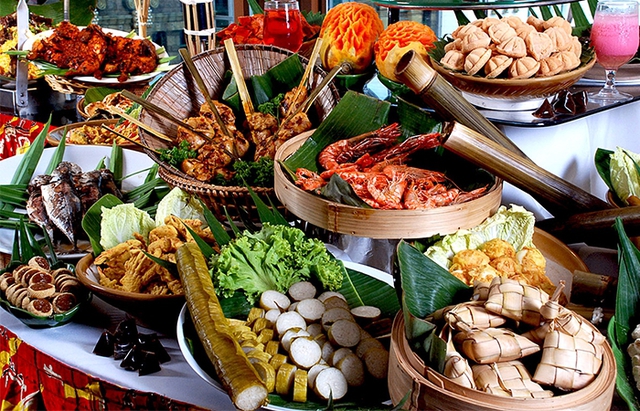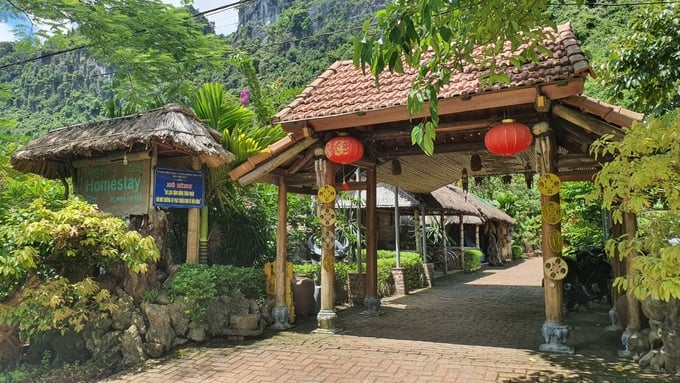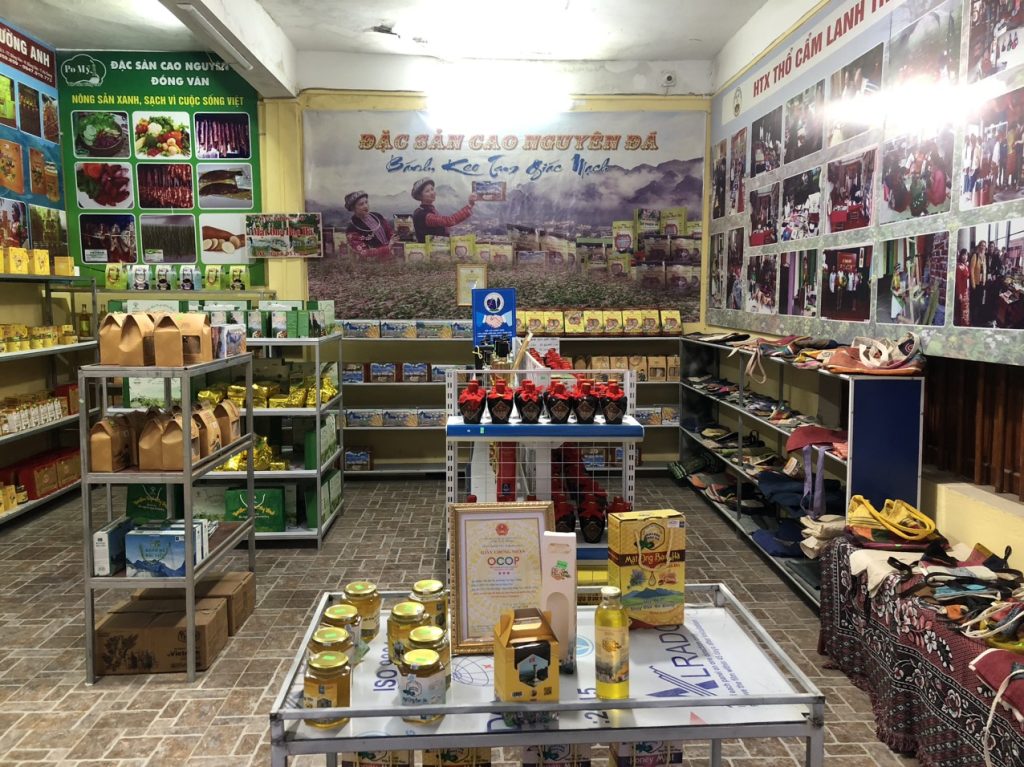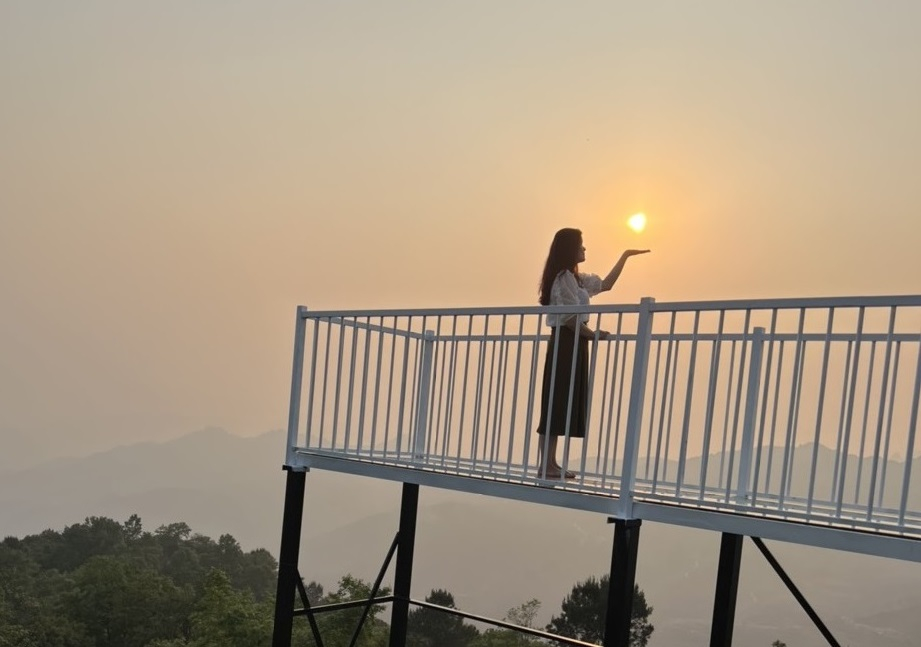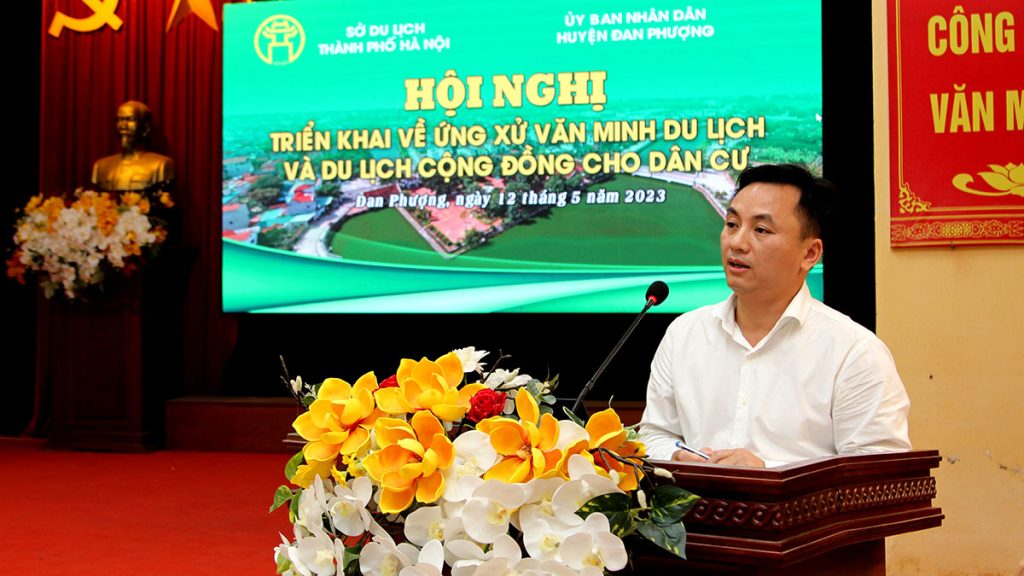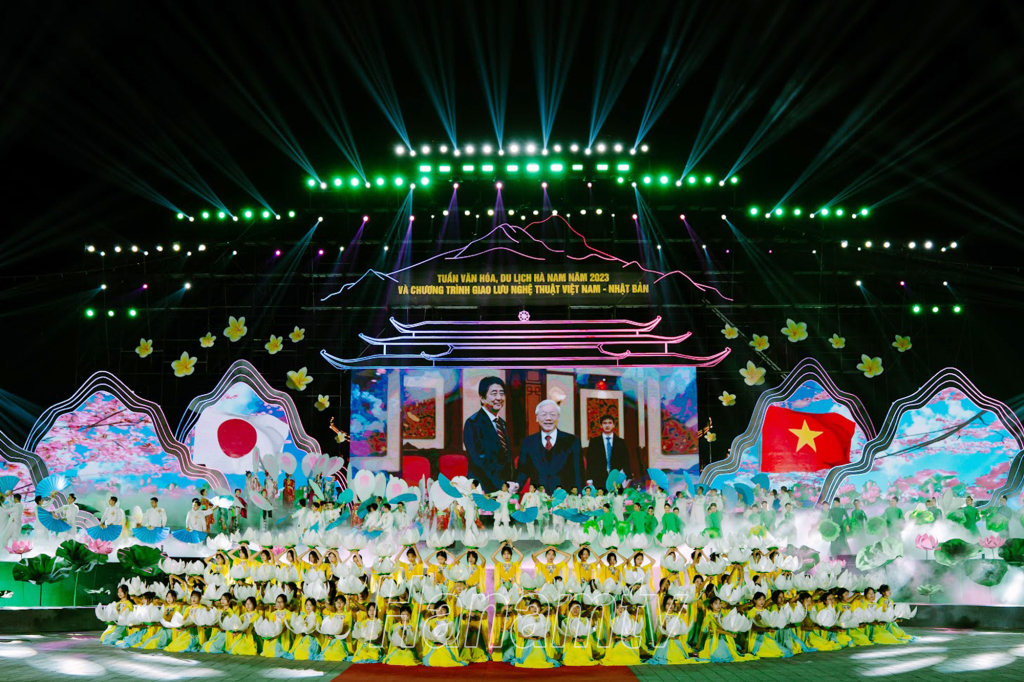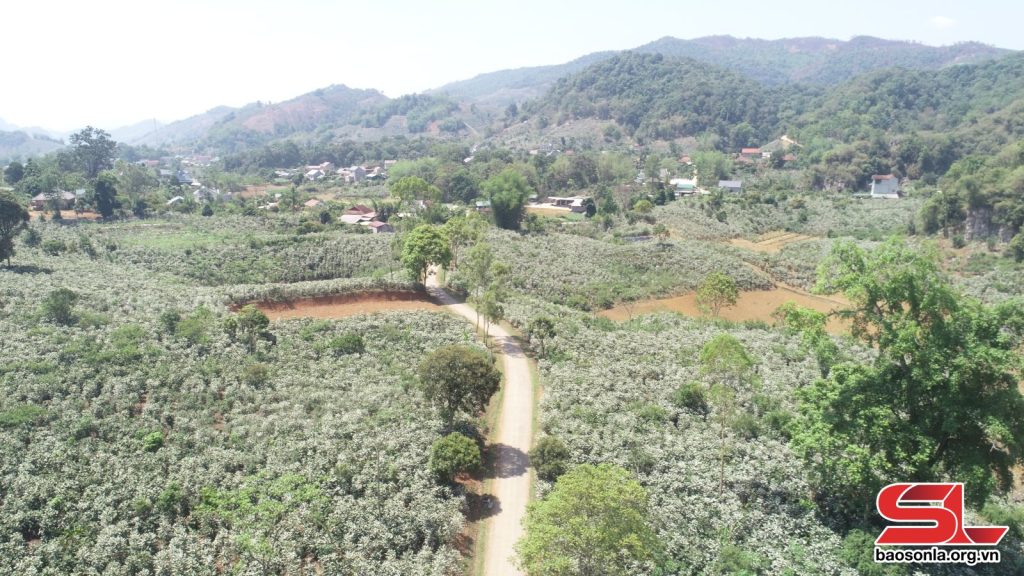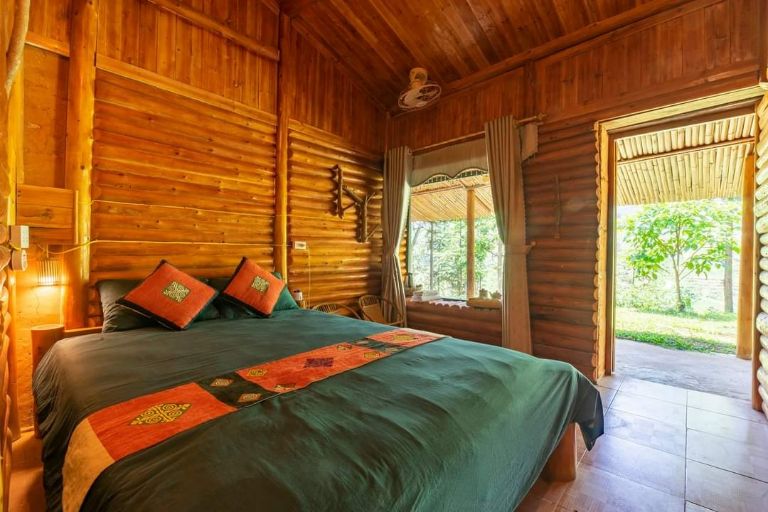(TITC) – Rural tourism in Phu Tho represents a unique form of travel that blends cultural and natural experiences across the countryside, including agricultural, traditional craft, ecological, cultural, and community-based tourism. With the recent administrative merger of Phu Tho with Hoa Binh and Vinh Phuc provinces, the newly expanded Phu Tho province now possesses enriched resources for developing rural and agricultural tourism.
Abundant Resources for Development
The original Phu Tho province boasts a diverse terrain with mountains, rivers, and fertile farmlands. The Xuan Son National Park, rich in biodiversity, is a prime destination for nature lovers. Visitors here can engage with the local Muong and Dao communities, enjoy traditional cuisine, and explore the natural surroundings. Other eco-tourism attractions include Ao Chau Lagoon, Van Hoi Lake, Ao Gioi -Suoi Tien, May Waterfall, Mo Waterfall, and Ly Lake.
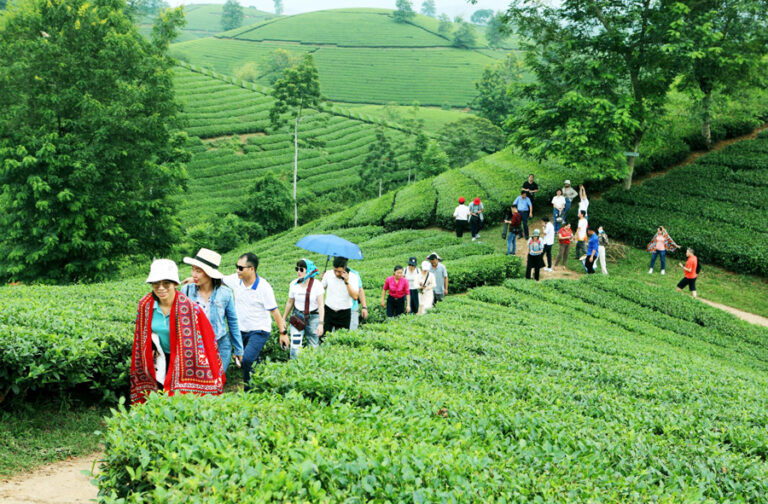
Visitors experience Long Coc tea hill (Photo: TITC)
The Hung Kings Temple, a significant cultural and spiritual site, offers opportunities to integrate cultural and community tourism. The ancient village of Hung Lo is another highlight, known for its heritage-based tourism and the performance of Xoan singing, a UNESCO-recognized art form.
Phu Tho is also home to distinct agricultural zones. The Doan Hung pomelo region attracts tourists interested in visiting orchards and learning about pomelo cultivation. Tea hills in Long Coc, Dich Qua, and Van Luong, particularly the scenic bowl-shaped hills of Long Coc, offer picturesque landscapes and insights into tea production. Other notable craft villages include Tan Duc (vegetable farming), Gia Thanh (conical hats), Van Du (woodworking), Ba Dong (bamboo weaving), and Duc My (fermented soybean paste).
With the merger, Phu Tho now includes Hoa Binh and Vinh Phuc’s rich ethnic tourism areas. Visitors can explore Lac Village and Hang Kia, which offer community-based tourism with Thai culture, homestays, and local customs. Sung and Ngoi villages focus on Dao and Muong heritage with activities like traditional textile weaving and herbal medicine. In Cha Day Village, tourists can experience Mong cultural identity through indigo dyeing, tea plantations, and ancient forests.
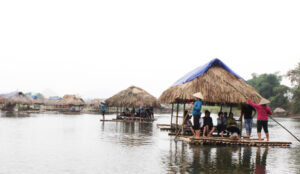
Visitors trek and explore the nature of Tam Dao (Photo: TITC)
Agricultural tourism is further enhanced by experiences in Cao Phong (oranges), Tan Lac (red pomelos), and Luong Son (organic vegetables), as well as cage fish farming in Hoa Binh Lake combined with Da River fish cuisine. Local OCOP (One Commune One Product) goods like bamboo rice, ethnic pork, tube wine, and purple sugarcane are integrated into tourism packages for culinary and shopping experiences.
Innovative Models and Sustainable Development
Eco-farms and high-tech agricultural sites are emerging attractions. Tourists can visit farms cultivating black grapes and strawberries using greenhouse methods, enjoy rural cuisine, and try fishing. The Dai Lai Cooperative offers activities such as vegetable harvesting, team building, and boat rowing, ideal for families and students. These farms are increasingly collaborating with schools to host educational tourism programs.
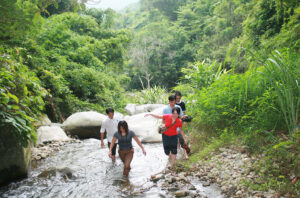
Visitors experience camping site on Boi River (Photo: TITC)
Traditional craft villages are also being developed into souvenir centers, where tourists can try making local products and learn about traditional skills.
According to Mr. Duong Hoang Huong, Director of the Department of Culture, Sports and Tourism of Phu Tho, the expanded province now integrates three cultural-spiritual-ecological identities: the sacred Hung King heritage, modern urban industry, and pristine indigenous tourism. This creates a new, interconnected development space that provides favorable conditions for restructuring tourism products, expanding markets, and strengthening regional connections. The goal is to establish Phu Tho as an appealing, safe, and culturally rich destination in northern Vietnam, with tourism becoming a key economic driver.
To fully unlock the potential of rural tourism in the new Phu Tho, coordinated, innovative, and determined efforts from all levels of government and sectors are required. This approach not only optimizes natural and cultural resources but also diversifies tourism offerings, boosts local incomes, preserves heritage, and supports sustainable rural development.
Effective Tourism Models to Replicate:
Community-based homestays in Xuan Son (Muong and Dao cultures)
Hung Lo craft village with food-making demonstrations and Xoan singing
Ha Den experience garden (organic grapes and melons)
Taca Farm eco-agriculture and fishing
Thanh Lang woodwork village and Huong Canh pottery
Community experiences in Lac, Sung, and Ngoi villages (ethnic culture, crafts, folk dances)
Nature trekking in Ngoc Son – Ngo Luong Reserve with local cultural immersion
With its proximity to Hanoi, favorable climate, and well-developed infrastructure, Phu Tho is well-positioned to develop premium tourism products such as cultural-spiritual tours, eco-wellness retreats, community experiences, adventure sports, and MICE tourism. This presents an ideal opportunity to reposition the tourism brand of northern midland and mountainous regions, enhancing competitiveness in Vietnam’s new national tourism development strategy.
Tourism Information Technology Center

